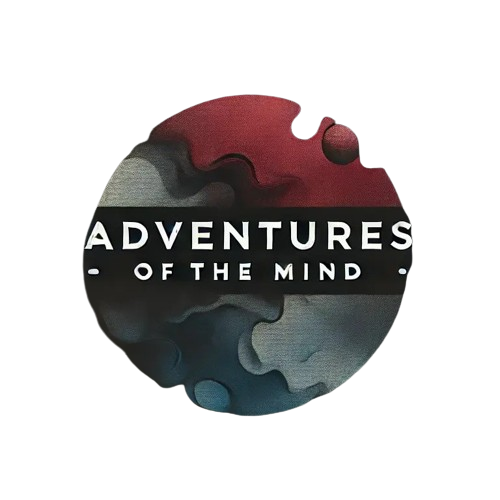Embody Your Philosophy
Published by Ben Worrall 10th November 2024

There’s a big difference between understanding an idea and making it a reality. Ideas are powerful; they’re the keys that open various doors of possibility. But true transformation is only possible when an idea is embodied.
Take a moment to ponder all the ideas, concepts, theories, insights, and discoveries you’ve made over the years. These might come from your schooling, real-world experiences, reading books, studying human nature, self-reflection, or even subtle intuitions you’ve had while lying awake at 3 a.m.How many of these have you applied to your life or used to make real, practical changes in the world?
And how many have been left to fester in your psyche, eventually succumbing to the foaming veil of the unconscious?
This is the crucial distinction between the individual who uses intellectual exploration as an escape and the one who harnesses deep thinking for the betterment of himself and mankind.
I explore this topic as someone who has fallen into the trap of over-prioritizing the accumulation of knowledge at the expense of real-world growth and change. I could have done a better job of balancing the thrill of discovering new insights with the grinding effort required to actualize them. So, like most of my writing, this essay is a reminder to myself.
With that said, I believe this is a common problem for many of us. It boils down to placing too much value on theory and not enough on action — a failure to understand the importance of embodiment for any type of transformation.
The Process of Embodiment
To embody something is to give concrete form to what would have otherwise only existed in the abstract. For you, this would mean getting to the point where you don’t just understand what it means to live a good life but to actually live it.
In some instances, embodiment takes place naturally over time as you repeatedly engage with powerful ideas. As you return to this wisdom, it becomes ingrained in your thought process and ultimately changes your behaviour.
More often than not, however, embodiment requires a conscious approach. This means learning with intention. It means keeping your sight steadily fixed on the outcomes you desire.
My advice is to approach your learning in a way that allows you to begin to implement discoveries immediately. When you learn about something new, don’t just acknowledge it and move on, but note it down and think about how exactly you can make it work for you. Here are some questions you could consider asking yourself:
Is this a lesson that could improve my life?
Are there any problems with this approach?
Does it fit well with my personality type?
How can I best implement this into my life?
How will it change my thinking?
How will it change my behaviour?
How will it change my understanding of the world?
How would I know if I’ve successfully embodied this lesson?
Keep in mind that there are drawbacks to approaching learning with an intentional mindset. The most obvious is that it will slow you down. Embodying an idea takes far more time and effort than just learning about it. So you’re forced to consume less information and instead, you focus on squeezing all the juice out of what you’ve already learnt.
This can be difficult because as humans we naturally want to avoid the taxing process of inner work and prefer to go for the dopamine hit we get from cramming knowledge.
This is why many people engage with transformative ideas as if they’re prodding a dead frog with a stick and then find themselves in the same — often a worse — place than when they began.
Embodiment through experience
Experience is the key to embodying your philosophy.
Repeated experiences will change your beliefs, transform your self-image and normalize this new behaviour.
Here are some opportunities to implement new ideas in the real world:
Try new things — even if they’re not for you, you can still have the opportunity to put theoretical lessons into practice in a range of unique scenarios.
Experiment — Conduct personal experiments so that you can better understand what works for you and what doesn’t.
Reach for the next step — Even if you don’t feel ready to move on to the next step in whatever endeavour you’re partaking in, pushing yourself to go for it anyway can be a quick way to embody lessons in an environment that forces you to sink or swim.
Teach the lessons to others — One of the best ways to integrate lessons is to teach them to others. You’re forced to fully understand the lesson yourself to communicate it effectively.
The only way you can truly know anything is through direct experience. Therefore experience is the best teacher and the ultimate catalyst for change.
Embodiment is Infectious
"Nothing is as encouraging as when virtues are visibly embodied in the people around us, when we’re practically showered with them." — Marcus Aurelius
As we embody our principles we communicate them through how we behave. We demonstrate them through our actions. And it’s this showing rather than telling that proves to be the most powerful form of influence.
By voluntarily becoming a vessel for our ideas we demonstrate their value to ourselves and others. In this way, the individual who embodies his philosophy is in a position to not only change himself but to change the world. Just like other inspiring people throughout history, you become a human example of your highest ideals. The qualities you choose to embody are manifest in the world; they become true.
This leads to a larger point and that’s the idea that internal changes seek to manifest themselves outwardly. Another way to say this is that when something is infused with an idea, it will naturally gravitate towards expressing that idea through its very being.
You can see this in operation by observing how everyone around you tends to orient themselves in line with each other. Your conception of the world is based on the ideas your neighbours have embodied, and vice versa. The narratives we share are so prominent because we are constantly demonstrating them and passing them around to each other.
For example, your friends use language in a certain way to represent the ideas they have embodied and you pick up on this language and use it in the same way. Both parties are embodying, demonstrating, and reinforcing each other’s ideas. We replace reality with our ideas about it and these ideas shift in form based on the extent they are being collectively embodied.
It’s also not just people that can embody and influence our sense of reality but objects.
Your living room chair is comfortable because comfort is a value that its creator embodies.
A piece of art makes us feel a certain way because it embodies the potential for that experience. The possibility for reflection or melancholy has been infused into the piece itself.
Even aspects of nature embody specific qualities. For example, a tree isn't a neutral object. A tree is only a tree because it embodies ideas that make it a tree and then passes these ideas on to those interacting with it. When you engage with a tree its very existence encourages specific thoughts, feelings, or an intuitive knowing.
Therefore, what we choose to embody should represent the qualities we want to see in the world. This is an unrecognized power and a serious responsibility that each of us possesses. It gives our lives meaning. You are helping to construct reality based on what you choose to embody.
Embodying the Universe
"When you come from ‘wisdom’ you do certain things because you are wise, not because you are trying to get wisdom. When you come from love you do certain things because you are love, not because you want to have love." — Neale Donald Walsch
We’re left with a vital question: What exactly do we choose to embody?
This decision lies with you alone. Nobody should be allowed to make it for you, as this would be outsourcing the essential task of your life.
With that said, I’m going to share my thoughts on what we should be looking to embody and leave it up to you to figure out its validity.
Ultimately, as we are creations of the universe and intrinsically connected to it, the qualities we should strive to embody are those most aligned with the universe itself.
What these qualities are is debatable, as the universe is mysterious. However, I believe there are common themes found in known creation that seem to be overarching in scope and power.
These include balance, creativity, intelligence, truth, and love.
For me, therefore, it’s these qualities that should be embodied if a human wishes to reconnect with its source as a universal entity.
The more you manage to embody these qualities, the less reality appears as a harsh mechanical system that you have been born into and need to battle and conquer. Instead, it becomes your ally, a force not separate from you, and therefore working with you rather than against you.
That doesn’t mean life will be perfect, but you’re able to see, that your embodied qualities radiate within the imperfection, and that connects you with all things as if you had chosen them yourself.
Ben Worrall





